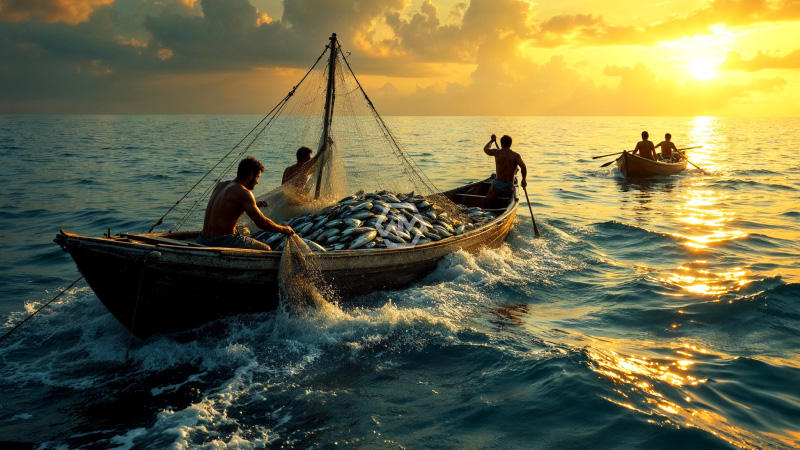- Bangladesh begins a 58-day fishing ban from April 15 to June 11.
- Odisha enforces a 60-day ban on mechanised fishing until June 14.
- Both moves aim to conserve marine biodiversity during peak spawning season.
The government of Bangladesh has implemented a 58-day sea fishing ban from April 15 to June 11 across its coastal regions, including Bhola. This annual measure targets all sea-going vessels. It ensures the safe breeding of marine species.
Simultaneously, the Indian state of Odisha has launched its 60-day annual fishing ban, spanning April 15 to June 14, under the Odisha Marine Fishing Regulation Act, 1982. It restricts mechanised boats and trawlers from operating along the 484-km coastline.
Fishing Halts Across Bay Waters as Nations Prioritize Marine Conservation
Bangladesh’s 58-day fishing suspension in the Bay of Bengal is grounded in its 2023 Marine Fisheries Rules. It seeks to revive fish populations during a critical spawning phase. The move has broad economic and ecological significance, especially for fish species like hilsa, a key part of the coastal economy.
To ensure the effectiveness of the ban, the Bangladesh government has mobilized a task force comprising the Coast Guard, Navy, and Department of Fisheries. Regular patrolling will be carried out to prevent illegal fishing activity. Local fisheries officials also emphasize the importance of community support in upholding the conservation goals.
In Odisha, over 21,000 fishing vessels, including 2,000 trawlers, are directly impacted by the seasonal halt. Fisheries officials instructed vessels to dock by April 14 midnight, and those failing to comply risk penalties. The measure is seen as essential to replenish marine stocks affected by overfishing and climate stress.
Interestingly, while large-scale operations are paused, Odisha still permits traditional, smaller boats to fish within restricted waters. This nuanced approach reflects an attempt to balance environmental sustainability with the livelihoods of small-scale fishers who rely on daily catches for income.
These synchronized bans in Bangladesh and India highlight a regional commitment to sustainable fishing practices. They aim to preserve marine life while supporting coastal communities.
“We won’t have a society if we destroy the environment.” — Margaret Mead



